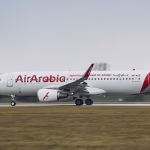Ethiopia is rapidly establishing itself as a major player in Africa’s aviation industry, setting an example of how strategic planning and investment can transform a country into a global hub for air travel. With its extensive global connections and significant purchases from leading aircraft manufacturers like Boeing and Airbus, Ethiopia is becoming a reliable partner in defining the future of air travel on the continent.
The Role of Ethiopian Airlines
At the heart of Ethiopia’s aviation success is Ethiopian Airlines, the nation’s flagship carrier. Consistently ranked among the best airlines in Africa, Ethiopian Airlines is known for its expansive route network, modern fleet, and excellent service. It operates flights to over 127 international destinations and 22 domestic cities, making it a vital connector between Africa and the rest of the world.
The airline’s forward-thinking strategy includes fleet modernization, investment in advanced aviation technology, and partnerships with other global airlines. These factors have enabled Ethiopian Airlines to maintain profitability even in challenging times for the aviation industry.
Strategic Geographic Location
Ethiopia’s geographical position gives it a competitive edge. Located at the crossroads between Africa, the Middle East, Europe, and Asia, the country serves as a natural gateway for international flights. Bole International Airport in Addis Ababa has become one of Africa’s busiest hubs, offering seamless connectivity for travelers and cargo alike.
Investments in Infrastructure
To sustain its growing aviation sector, Ethiopia has made significant investments in airport infrastructure. Bole International Airport has undergone several expansions, including the recent addition of a state-of-the-art passenger terminal. Plans are also underway to construct a new mega airport capable of handling up to 100 million passengers annually, a move that underscores the country’s ambition to become a global aviation hub.
Fleet Expansion and Partnerships
Ethiopian Airlines’ fleet expansion is a testament to its commitment to growth. The airline has consistently placed large orders with Boeing and Airbus, ensuring a modern and fuel-efficient fleet that meets international standards. As at the time of writing, the airline operates a total of 153 aircraft with 68 more aircraft on order from both Boeing and Airbus aircraft manufacturers. The working fleet comprises a mixture of long range and medium range aircraft that cater for both passenger and cargo services. Additionally, partnerships with global aviation players have bolstered its capacity to deliver world-class services.
Training and Workforce Development
Ethiopia’s aviation aspirations extend beyond infrastructure and fleet expansion. The Ethiopian Aviation Academy, one of Africa’s largest and most respected aviation training centers, plays a crucial role in developing skilled professionals. The academy trains pilots, cabin crew, maintenance technicians, and other aviation personnel, ensuring a steady supply of talent to support the industry’s growth.
Economic and Tourism Impact
The growth of Ethiopia’s aviation sector has had a ripple effect on the country’s economy. By facilitating trade and attracting tourists, the aviation industry contributes significantly to GDP growth. Addis Ababa has also emerged as a popular stopover destination, further boosting Ethiopia’s tourism sector.





